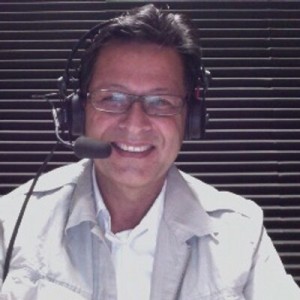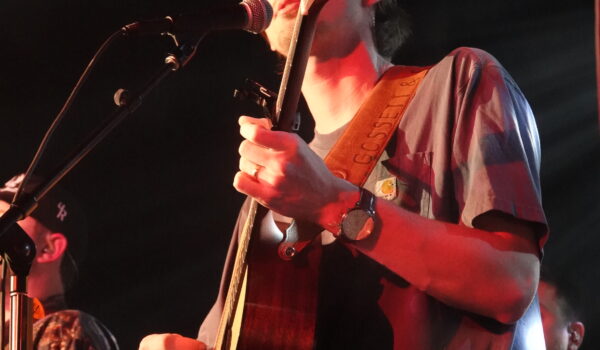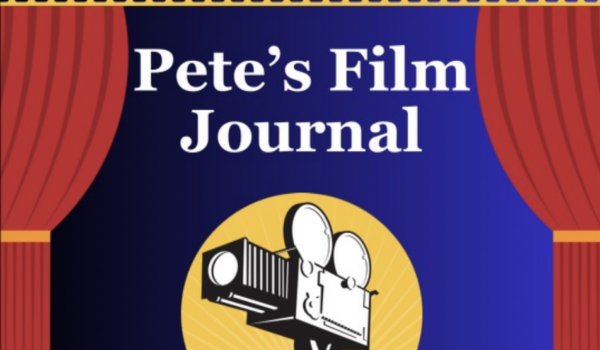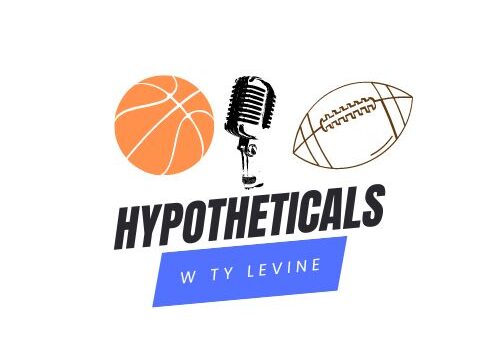
Arley Londoño hails from Colombia and has worked in many facets of Spanish-language media. The soccer play-by-play announcer and former CNN anchor now has a new favorite sport to call: hockey.
After serving as the Florida Panthers Spanish play-by-play announcer for the franchise’s first three seasons, Londoño became a lead anchor at CNN in Atlanta in 1996. With his departure, the team discontinued the program. Nearly two decades later, Londoño has returned to the Panthers’ broadcast booth and fallen back in love with hockey. In fact, the long-time soccer commentator might just have a new favorite sport.
“In soccer, we have a lot of actors. They presume fouls, they stop the game, they take a long time to shoot a free kick,” Londoño says. “This is the difference, in good terms, in favor of hockey. Hockey never stops. They don’t lose time. If you want to see the most exciting sport, [hockey] is the most exciting discipline around the world, I think.”
The soccer announcer’s rekindled love for hockey shows in his long, enthusiastic goal calls. Following Florida’s win on October 30th—Londoño’s first time calling hockey since the 1996 Stanley Cup Finals—his passionate call of Scottie Upshall’s goal went viral on YouTube, generating over 50,000 views. The team’s first Spanish broadcast in 1993 received a similarly positive response. Unfortunately, the team stopped the radiocasts when Londoño left for Atlanta after three successful seasons.
Following 18 years without a Spanish-language broadcast, the Panthers decided to revive the program because of one man. This impetus for reconnecting the team and Spanish-speaking fans was not Londoño, but rather Cuban-American backup goalie Al Montoya, who signed with Florida in July. Although Montoya has played in just nine of the Panthers’ first 32 games, signing ‘The Big Cubano’ was the first step in reigniting the Spanish game broadcasts.
Not long after Montoya inked a two year contract, Londoño received an invitation to return to the rink as the Spanish voice of the Panthers, which he happily accepted. “For me it was great news, coming back after almost 20 years,” he said. The initial plan was to broadcast three home games in Spanish over the local ESPN Deportes affiliates.
Florida’s 2-1 victory on October 30th ended the 6,716 day hiatus between Panthers Spanish radiocasts. A strong local and national response prompted the team to revisit the Spanish broadcast calendar, increasing the initial plan from three games to seven. Londoño calls this expansion “a giant step,” knowing that making more games available in Spanish will only help grow hockey in South Florida.
Londoño cites a new generation of Spanish speakers as the primary audience in his return to hockey. The announcer’s sons, who are avid hockey fans, fit well in this demographic. “They were born here in the United States, so that is the target. We are trying to teach the people who are already familiar with this discipline.”
Hispanic-Americans not only represent potential gain in both ticket and merchandise sales for the Panthers, but for the entire National Hockey League. Like Florida, the Arizona Coyotes and Dallas Stars struggle to consistently fill their arenas in regions with large Latino populations. Two of the NHL’s biggest and healthiest markets, Los Angeles and New York, are filled with Spanish-speakers. With this in mind, the Panthers’ success has broadcasting directors around the league considering Spanish-language broadcasts as a serious possibility.
Londoño recently heard from a colleague who had previously called some New York Rangers games in Spanish, and has been informed that the team is reconsidering the program because of the Panthers’ successes. The pride Londoño takes in the impact his work has held after just three games is clear.
Although Al Montoya’s presence on the roster marked the start of a reconnection between the Florida Panthers and Spanish-speaking Floridians, Arley Londoño is the face—and voice—of this project. Even outside Florida, he’s quickly becoming a major player in expanding the sport of hockey beyond its standard demographics in terms of language, race, and ethnicity. With the NHL and hockey rapidly gaining popularity both nationwide and worldwide, endeavors such as this one are instrumental in growing the game.








Comments